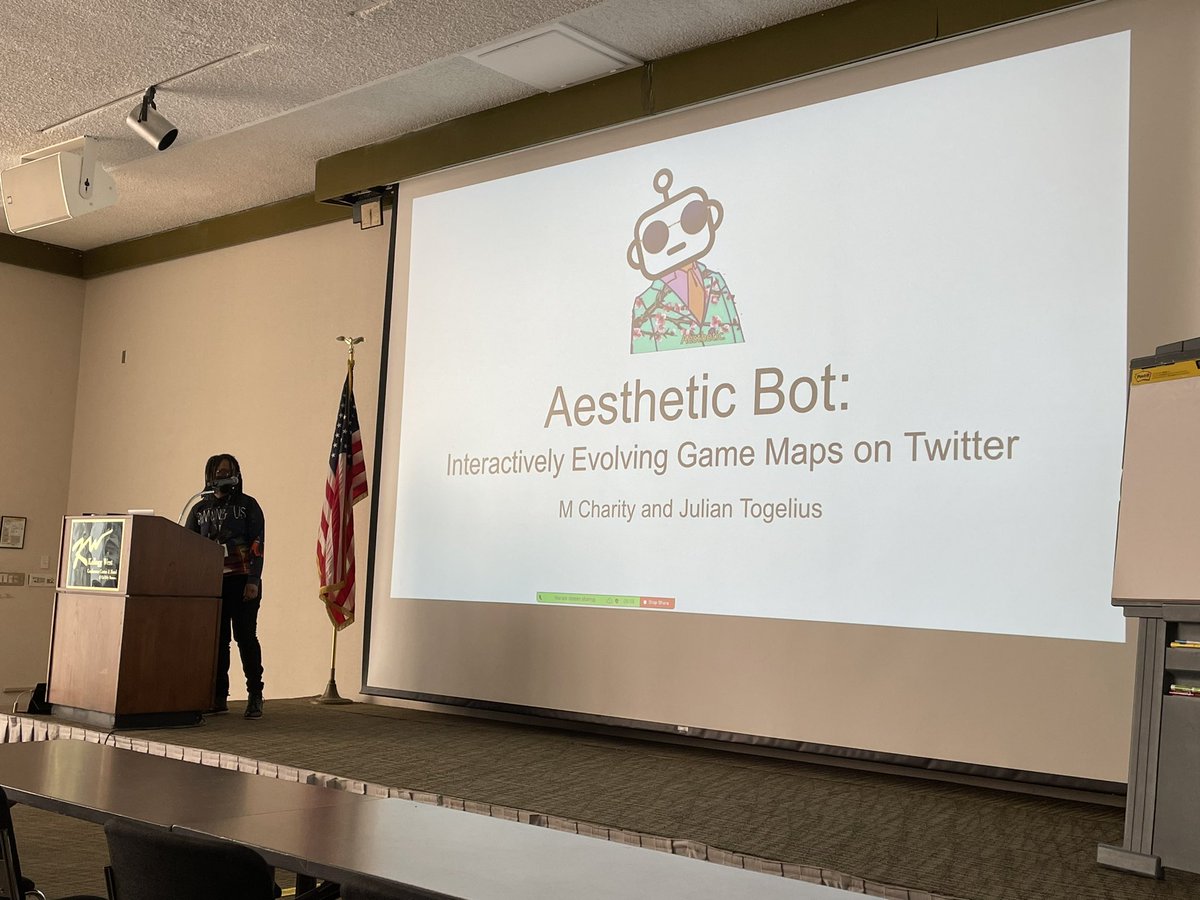
First session of #AIIDE22! @MasterMilkX (in an Among Us hoodie) presenting on their excellent @AestheticBot_22 crowdsourced PCG experiment. They start by calling out (rightly) how ugly academic PCG is. 

Next up @xxbidiao talking about mixed-initiative co-creation communication and control. 

For the last full presentation we have @ianhorswill pitching “Step” a maximalist scripting language for text/narrative generation. 

Says his goal is for his friends who are “writers” and “tabletop game designers” to be able to use it. I’m listening!
Ian argues that the fact that he can reimplement one of his games in Step in 35% fewer lines means it’s simpler than Prolog, and that fewer punctuation characters means it’s more readable. 



Now we have a series of short poster presentation/previews for the poster session tomorrow #AIIDE22. First up, @maxkreminski discussing a new mixed-initiative story generator based on story sifting, a follow up on their thesis work. 

Interface is reminding me a lot of @SentientDesigns’ Sentient Sketchbook 

Next up @aeau here to play a video from one of his students on a turned-based version of the Evolutionary Dungeon Designer (when’d they stop calling it Eddy?) 



Finally we’ve got Sam Shields from UCSC (and Ross, @eddiemelcer, and @mmateas) looking at automatically generating balanced brawler games with evolution. 



Link here github.com/smshields/Braw…
Second paper session thread:
https://twitter.com/matthewguz/status/1585369530871599104
• • •
Missing some Tweet in this thread? You can try to
force a refresh


















